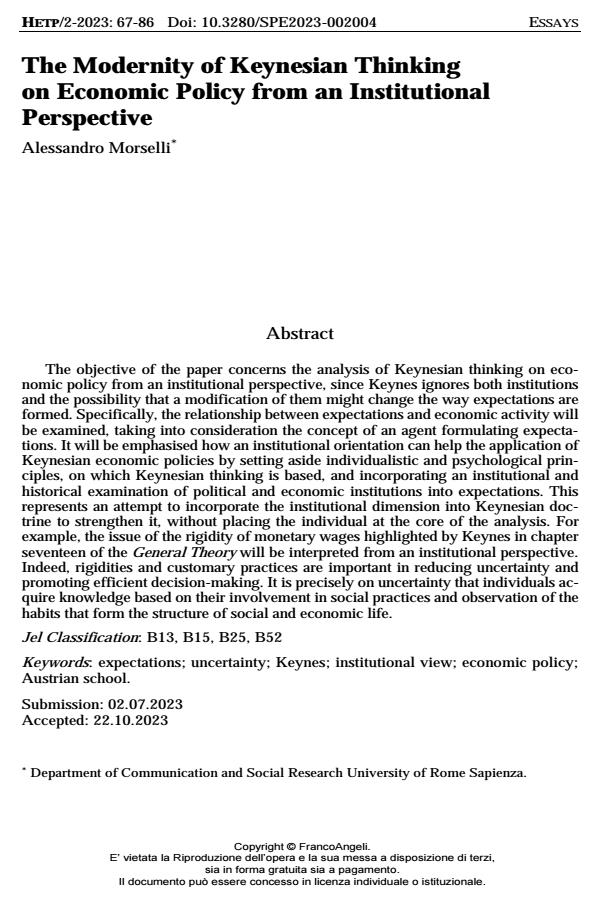The Modernity of Keynesian Thinking on Economic Policy from an Institutional Perspective
Journal title HISTORY OF ECONOMIC THOUGHT AND POLICY
Author/s Alessandro Morselli
Publishing Year 2024 Issue 2023/2
Language English Pages 20 P. 67-86 File size 81 KB
DOI 10.3280/SPE2023-002004
DOI is like a bar code for intellectual property: to have more infomation
click here
Below, you can see the article first page
If you want to buy this article in PDF format, you can do it, following the instructions to buy download credits

FrancoAngeli is member of Publishers International Linking Association, Inc (PILA), a not-for-profit association which run the CrossRef service enabling links to and from online scholarly content.
The objective of the paper concerns the analysis of Keynesian thinking on economic policy from an institutional perspective, since Keynes ignores both institutions and the possibility that a modification of them might change the way expectations are formed. Specifically, the relationship between expectations and economic activity will be examined, taking into consideration the concept of an agent formulating expectations. It will be emphasised how an institutional orientation can help the application of Keynesian economic policies by setting aside individualistic and psychological principles, on which Keynesian thinking is based, and incorporating an institutional and historical examination of political and economic institutions into expectations. This represents an attempt to incorporate the institutional dimension into Keynesian doctrine to strengthen it, without placing the individual at the core of the analysis. For example, the issue of the rigidity of monetary wages highlighted by Keynes in chapter seventeen of the General Theory will be interpreted from an institutional perspective. Indeed, rigidities and customary practices are important in reducing uncertainty and promoting efficient decision-making. It is precisely on uncertainty that individuals acquire knowledge based on their involvement in social practices and observation of the habits that form the structure of social and economic life.
Keywords: expectations; uncertainty; Keynes; institutional view; economic policy; Austrian school.
Jel codes: B13, B15, B25, B52
Alessandro Morselli, The Modernity of Keynesian Thinking on Economic Policy from an Institutional Perspective in "HISTORY OF ECONOMIC THOUGHT AND POLICY" 2/2023, pp 67-86, DOI: 10.3280/SPE2023-002004